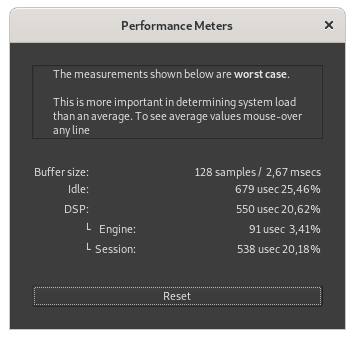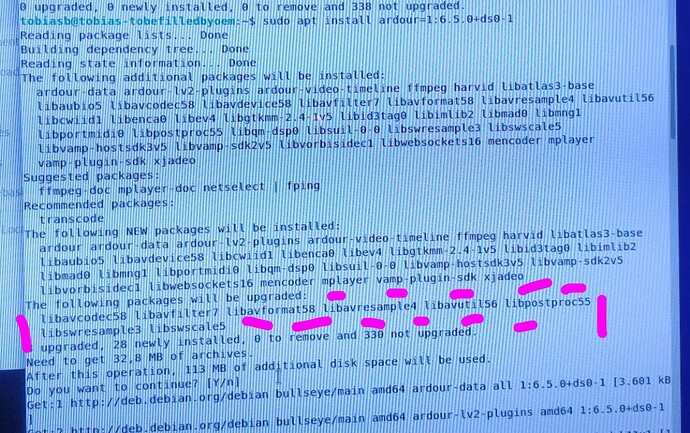Hello everyone,
I have upgraded my Ardour 5.12 on Debian and I get xruns while using Ardour 6.5 which was not the case before the upgrade. I cannot find a good explanation for this on my own, so I would like to get sone other opinions on that problem.
The details on my setup and stuff were intensively posted around comment Is it really possible to get down to 0 Xruns? - #82 by topas.
Basically I had to
- disable WIFI
- use Liquorix low latency kernel (or in other words: use a 1000Hz kernel, because with liquorix version not using 1000Hz setting I got xruns)
- use realtime execution rights for the user to run jack in RT
to make 48000 Hz / 128 buffer size / 2 periods and pulseaudio bridged to jack work without xruns for hours used at least once a week for about two years now. That even worked after switching from Debian Buster to Debian Bullseye by using a fresh install of the distro and setting it all up again.
The Ardour version was from kxstudio repo and I realised that this version is not managed anymore and even my Debian stable version is newer. So I upgraded to that. I did not changed any other setting.
Once that was done I experienced xruns when
- closing the Ardour session (EVERY time I close it I get exactly one xrun - that may be related to non realtime safe software parts of Ardour - so lets not fix this, but remember it)
- When I test my setup by letting it run for at least six hours I get xruns WHEN ARDOUR IS RUNNING IN THE SETUP (no xruns for at least 6 hours when I just remove Ardour from the setup (tested twice)
The second point is what bothers me.
Test setup briefly: Running Ardour and Guitarix while Ardour is loop recording the output of Guitarix and another input channel. (Pulseaudio bridged and RAW MIDI driver and MIDI bridge running)
To verify this I took another notebook I found and did the same. Setup my definition for setup for 0 xruns and tested it in the same way as on my main PC with Ardour 5 and then with Ardour 6. The results are the same for the xruns when closing the session. I did not let this thing run for longer to see xruns while recording. I can do that if necessary.
So the same behavior on another computer.
Usually the discussions about xruns start by examine the PC setup. I can’t believe I can solve this using my PC setup because the people in other discussions have xruns if Ardour runs or not and this was the case for me, too before tweaking the things I have done. Xruns after a few hours even when no jack app was started - just running jack created xruns. Since I don’t have this and did not have this before the upgrade I think it is Ardour related - but I don’t know - I am not an Ardour expert, but a programmer.
Thats why I thought maybe the callbacks from jack into Ardour might need more processing power and changed my CPU (i5 3570k 4 cores at about 3.4 GHz) to maximum clock rate - withoit success.
What do you think about this?


